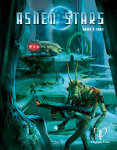Robin D. Laws's Blog, page 86
February 23, 2012
The Birds: Poorly
February 22, 2012
Leaving the Duck In
 In their book How To Write Movies for Fun and Profit, Robert Ben Garant and Thomas Lennon explain why so many Hollywood movies quote, suck donkey balls, unquote. Studio pictures notoriously cycle through writers as execs quest for the chimerical ideal balance between elements that will draw in audiences, leaving those who greenlit them unfired. As projects go through draft after draft, characters and concepts accrete to the screenplay. When a film feels like an unrealized mishmash, it's because those elements survived to the shooting script, when though the moments they were meant to support didn't, and are now nowhere to be seen.
In their book How To Write Movies for Fun and Profit, Robert Ben Garant and Thomas Lennon explain why so many Hollywood movies quote, suck donkey balls, unquote. Studio pictures notoriously cycle through writers as execs quest for the chimerical ideal balance between elements that will draw in audiences, leaving those who greenlit them unfired. As projects go through draft after draft, characters and concepts accrete to the screenplay. When a film feels like an unrealized mishmash, it's because those elements survived to the shooting script, when though the moments they were meant to support didn't, and are now nowhere to be seen.
The example they cite concerns the for tough-guy-meets-kids comedy, The Pacifier, which, when they first worked on it, was meant to star Jackie Chan. In their version, Jackie brings the children a live duck. Their faces light up in excitement. Jackie gets out his meat cleaver, ready to cut off the duck's head, to prepare it for dinner. The children, being westerners, react in horror. So that's why The Pacifier prominently features a pet duck. Except that Chan dropped out of the project, which ultimately starred Vin Diesel. The meat cleaver gag got cut, because it made no sense with a non-Asian actor.
But the duck stayed in the movie.
We can extrapolate this into a saying, which we can mutter knowingly to one another as we depart in disappointment from a film that obviously lost its coherence during development hell.
"Wow, that one sure left the duck in."
February 21, 2012
The Classical Monster No One Wants To Fight
 A common project of the AD&D days was the scouring of classical and world mythology for creatures that might be statted up and sent off to duke it out with dungeon-exploring adventuring parties. Some imaginary beasties, it transpires, are more equal than others. No death could be more honorable than that faced by characters falling before a chimera, basilisk or hydra—especially if temporary. Other classical creatures, like the peryton, seem like candidates for a monster reboot. It's especially embarrassing to be killed by a creature that is likely not classical at all, but a recondite joke of Jorge Luis Borges'.
A common project of the AD&D days was the scouring of classical and world mythology for creatures that might be statted up and sent off to duke it out with dungeon-exploring adventuring parties. Some imaginary beasties, it transpires, are more equal than others. No death could be more honorable than that faced by characters falling before a chimera, basilisk or hydra—especially if temporary. Other classical creatures, like the peryton, seem like candidates for a monster reboot. It's especially embarrassing to be killed by a creature that is likely not classical at all, but a recondite joke of Jorge Luis Borges'.
The divide between the purely mythical creature and mistaken belief about real animals also blurs the picture. Linnaeus, as he systematized taxonomy in the 18th century, still accepted the mermaid as a likely animal, if not a hybrid of woman and fish.
Earlier still, Aristotle's confusion over the identity of the European buffalo led him to record the existence of one creature no one wants in a roleplaying bestiary, even though it's totally clear what its attack form would be. This animal was given various names, including the catoblepas, and confused for an entire menagerie of creatures. Here's the animal Aristotle assigns to one such name.
Aristotle described the bonasus as being capable of "projecting its excrement to a distance of eight yards…the excrement is so pungent that the hair of hunting dogs is burnt off by it."
– from Naming Nature: The Clash Between Instinct and Science, Carol Kaesuk Yoon
Despite the delight of twelve year old boys everywhere—or rather, because of it—the poor, imaginary bonasus never made it to the pages of a Monster Manual. And doubtless never will. Among the deaths too horrible to contemplate, demise by bonasus ranks humiliatingly high on the list.
February 17, 2012
Top Ten Movies 2011
 With Oscar season barreling down upon us, it occurs to me that I haven't yet posted my 2011 Top Ten Movies list. I was thinking I'd get out and catch a last few likely candidates, but, as always, they will have to go sit in the asterisk pile.
With Oscar season barreling down upon us, it occurs to me that I haven't yet posted my 2011 Top Ten Movies list. I was thinking I'd get out and catch a last few likely candidates, but, as always, they will have to go sit in the asterisk pile.
The Tree of Life
Poetry
13 Assassins
Drive
Incendies
Hugo
Detective Dee and the Mystery of the Phantom Flame
Into the Abyss
The Trip
House of Pleasures
Foreign-language and indie titles led my list this year. Because the rolling—that's how I do it. I was going to link to the obscurer picks, but hey, you have the same Google I do. Most of these are already on disc. My highest-ranked blockbuster would be X-Men: First Class, coming in at #13.
Might have made the list if I'd seen them: Melancholia, Take Shelter, Moneyball.
Film festival screenings still pending theatrical release are not included, but may pop up on the 2012 list. Some of these I saw at the 2010 Toronto International Film Festival, although they came out last year. As always, because I live in a great film town and know how to pick films I'll probably like, I dub 2011 a good year for film. I have 43 films on my 2011 list and would recommend thirty of them.
February 16, 2012
The Birds: No Idea
February 15, 2012
In Defense of the Whiff Factor
 The pacing of roleplaying sessions improves when the GM follows a simple principle: never ask for a roll if failure would lead to a dead end or other uninteresting result. This principle appears in various guises in GUMSHOE, HeroQuest, and the 4e Dungeon Master's Guide 2.
The pacing of roleplaying sessions improves when the GM follows a simple principle: never ask for a roll if failure would lead to a dead end or other uninteresting result. This principle appears in various guises in GUMSHOE, HeroQuest, and the 4e Dungeon Master's Guide 2.
Sometimes though, as in this recent discussion of what the DNDNext team might profitably nick from GUMSHOE, it becomes important to distinguish between an uninteresting result and a setback that makes the player unhappy.
Specifically, the so-called "whiff factor", or prospect of rolling during combat and missing, is unrelated to the null result issue. Swinging and missing represents a loss for the player. In a mainline roleplaying game, the number of actions you can take in the course of a fight acts as an uber-resource. When you use them successfully, you whittle down your opponent's supply of another resource, usually hit points. (Or free slots on a wound track, or whatever.) When you roll and miss an opponent, something has definitely happened—you've fallen behind, losing a chance to score.
Likewise, a shot on goal in a hockey game never leads to a null result. The player either scores, or has lost a chance to score, a resource the dynamic of the game works to restrict. In either case, the emotional crescendo becomes apparent in the stands. If the player scores, his team cheers. If he misses, the defending goalie's team cheers.
Criticism may be leveled at a combat system where characters fail too often, dragging out the fight and undercutting the players' sense of vicarious competence. But that's a matter of striking a satisfying balance between success and failure, not of eliminating non-events.
A system may try to overcome its whiff factor by granting consolation prizes to players, in which they deal a lot of damage on a success and a smaller quantity on a failure. The question to ask here is whether that's blunting the emotional rollercoaster of success and failure, or merely putting a new coat of paint on a skewed ratio between the two.
February 14, 2012
Informational Rescue
 A Ripped From the Headlines Scenario Premise for Ashen Stars
A Ripped From the Headlines Scenario Premise for Ashen Stars
As this article reveals, the conversion of mortgages into complex financial instruments did more than provoke the 2008 global financial meltdown. The data-tracking process used to spin fragments of mortgages off into a tradeable derivative—creating a sort of mortgage slurry, if you will—now makes it impossible to determine whether homeowners, banks, investors, or anyone at all really owns certain real-world property. A nebulously owned property can't be used as collateral, undermining a key value of everyday finance.
Speaking of slicing and dicing, this springboards a scenario that perfectly fits the Ashen Stars setting, where information loss has been one of the prices paid by a former stellar utopia torn at the seams by recent warfare.
Unlike most planets of the Combine, the synthculture planet Trump's World practiced 20th century capitalism –albeit in idealized, tourist-park form—even before the Mohilar War. Private ownership of property underpinned this historical reenactment economy. Now info-saboteurs have struck at the heart of the system, scrambling the worldwide property database. The PCs are hired to track down the McGuffin on which the entire economy rests—the single accurate copy of the pre-disaster real estate registry. Complicating the mission: plenty of Trump's World moguls want the database back up—after they get a chance to fiddle with it, just a little…
February 13, 2012
Why A Core Activity Is Not a Straightjacket
 How To Design Games the Robin Laws Way
How To Design Games the Robin Laws Way
(Part Four of Several; see part one for introduction and disclaimer)
In the last installment of How To Design Games the Robin Laws way, I mentioned off-handedly that D&D is a game about killing monsters and taking their stuff, and that this determines the way it approaches certain sub-systems, like Perception. Another game, which has a different core activity or design throughline, might do these things differently—as GUMSHOE does.
The idea that D&D is a game about killing monsters and taking their stuff provoked some consternation. Gamers who are used to having their tastes slagged because they like D&D may be used to thinking of this as a slam*. Perish the thought! Without this clear, simple, escapist core activity, and D&D's focus on it, we wouldn't have a roleplaying hobby today. Nor would we have a huge swath of the video games that exist now. The phenomenal success of Warcraft, Skyrim and the like testify to the ongoing popularity of this core activity.
Nor does this mean that D&D can only be played as a game about killing monsters and taking their stuff. Because it is a roleplaying game—in some sectors, still the default roleplaying game—you can completely set aside that core activity, so that your D&D becomes a game about meeting people and learning their secrets. Or building your own power bloc as you whittle down those of your adversaries. Or of mapping dungeons and running away from monsters.
But it's much easier to establish your alternate core activity if the one provided as a baseline is readily apparent and strongly realized. If told that they can do anything in a game, players get stumped. If told they can do X, they may do X, or they may decide to do Y instead. The presentation of a choice, even if that choice is rejected, orients players and allows them to test their desires against the expectations the game presents.
Because so many people know it and are comfortable with its assumptions, D&D is more likely than later games to be used in service of an alternate core activity. One of 4e's strengths, its coherence and focus, became a stumbling block when some player constituencies found it hard to reconfigure to an alternate core activity. From this you might conclude that the platonic ideal D&D gets people playing with its entertaining and straightforward hook, but also remains elastic enough so that groups can decide to abandon that hook in favor of something else.
Newer games don't face the burden of having to serve as default RPG and can afford to err in the direction of too much focus on the core activity. But, like D&D, they can't do without one.
*Others raised semantic objections to the term killing. Because we all know there are tons of games out there in which the hardbitten adventurers mostly tickle the monsters and take their stuff.
February 10, 2012
The Birds: Bright Line
Click here for the complete strip archive.
Stuck in mobile mode? Click here for image file.
February 9, 2012
Scene Study: Luck
 With DramaSystem now out for playtest and wending its way toward crowdfunding, I'm kicking off a new occasional feature. In Scene Study, we look at dramatic scenes from other narrative forms, see how they tick, and look for lessons we can apply when playing Hillfolk, or roleplaying games in general.
With DramaSystem now out for playtest and wending its way toward crowdfunding, I'm kicking off a new occasional feature. In Scene Study, we look at dramatic scenes from other narrative forms, see how they tick, and look for lessons we can apply when playing Hillfolk, or roleplaying games in general.
The new David Milch / Michael Mann HBO series Luck follows an ensemble cast of race track habitues, from trainers to jockeys to owners to degenerate gamblers in pursuit of diverse agendas, all of which depend on the titular quality.
In episode two, freshly paroled gangland figure Chester Bernstein (Dustin Hoffman) and his right-hand man Gus (Dennis Farina), recap events of the recent past while on a car ride. Gus drives, with Chester in the back. In Hamlet's Hit Points terms, the scene acts as a reveal. It tells us what both men already know about the events that led Chester to prison, and which motivate the revenge he's now plotting against Mike, the confederate who let him take the rap for him.
On paper, you're never supposed to write a scene in which two characters reveal information they already know. On screen, this plays as a transcendent acting duet, with the music of Milch's stylized dialogue perfectly executed by two great actors.
It's also a dramatic scene, in which Gus, the petitioner, seeks for something other than the facts. They are the pretext for something deeper. He's drawing out the account of why Chester let himself take the fall to answer a question for himself. What he really wants from Chester is reassurance, a staple dramatic goal that often arises in Hillfolk games. He wants to know that they're doing the right thing, that he shouldn't have killed the other guy, as Gus was willing to do.
Chester grants Gus his petition. By conceding that Mike would never have done the same for him if their positions were reversed, Chester shows Gus that he understands the situation. Reassured, Gus accepts the matter as closed. In a DramaSystem game, Chester's player would earn a game currency called a drama token as reward for having satisfied the petitioner's emotional need.
The scene shows that low-key interactions can be just as memorable as the higher-stakes confrontations that appear around them. No great heat passes between the two men. They remain cordial throughout, and Chester winds up giving Gus what he wants. The moment affirms the tightness of their friendship. A compelling scene needn't turn on heated conflict. Here the answering of an audience question supplies all the interest we need to care about their exchange, to enjoy hearing these two guys talk.





